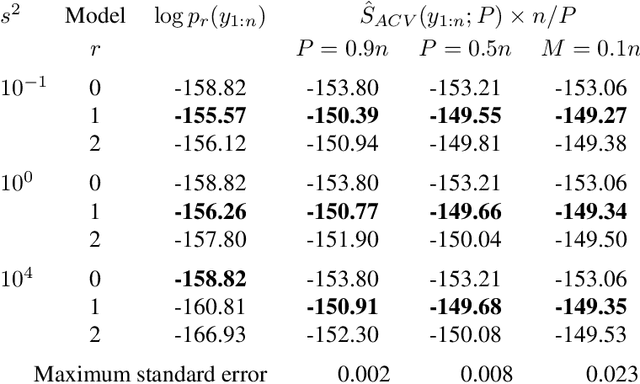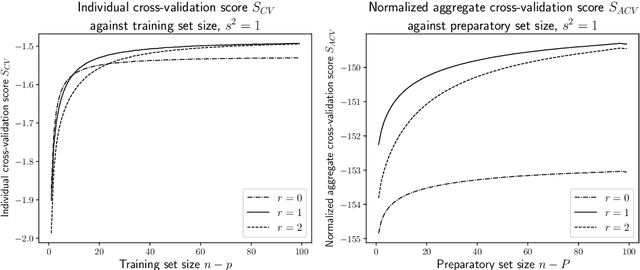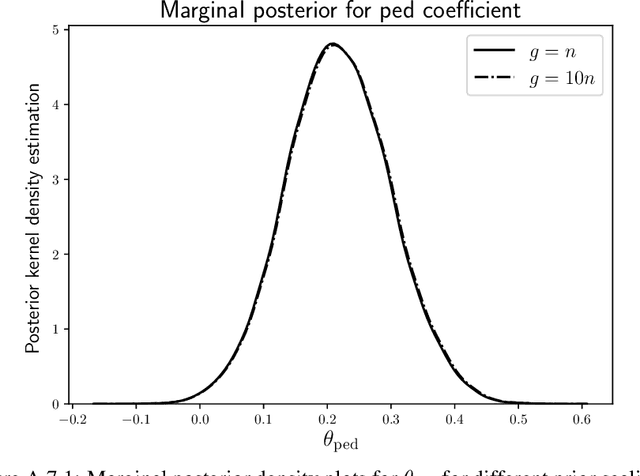On the marginal likelihood and cross-validation
Paper and Code
May 21, 2019


In Bayesian statistics, the marginal likelihood, also known as the evidence, is used to evaluate model fit as it quantifies the joint probability of the data under the prior. In contrast, non-Bayesian models are typically compared using cross-validation on held-out data, either through $k$-fold partitioning or leave-$p$-out subsampling. We show that the marginal likelihood is formally equivalent to exhaustive leave-$p$-out cross-validation averaged over all values of $p$ and all held-out test sets when using the log posterior predictive probability as the scoring rule. Moreover, the log posterior predictive is the only coherent scoring rule under data exchangeability. This offers new insight into the marginal likelihood and cross-validation and highlights the potential sensitivity of the marginal likelihood to the setting of the prior. We suggest an alternative approach using aggregate cross-validation following a preparatory training phase. Our work has connections to prequential analysis and intrinsic Bayes factors but is motivated through a different course.
 Add to Chrome
Add to Chrome Add to Firefox
Add to Firefox Add to Edge
Add to Edge